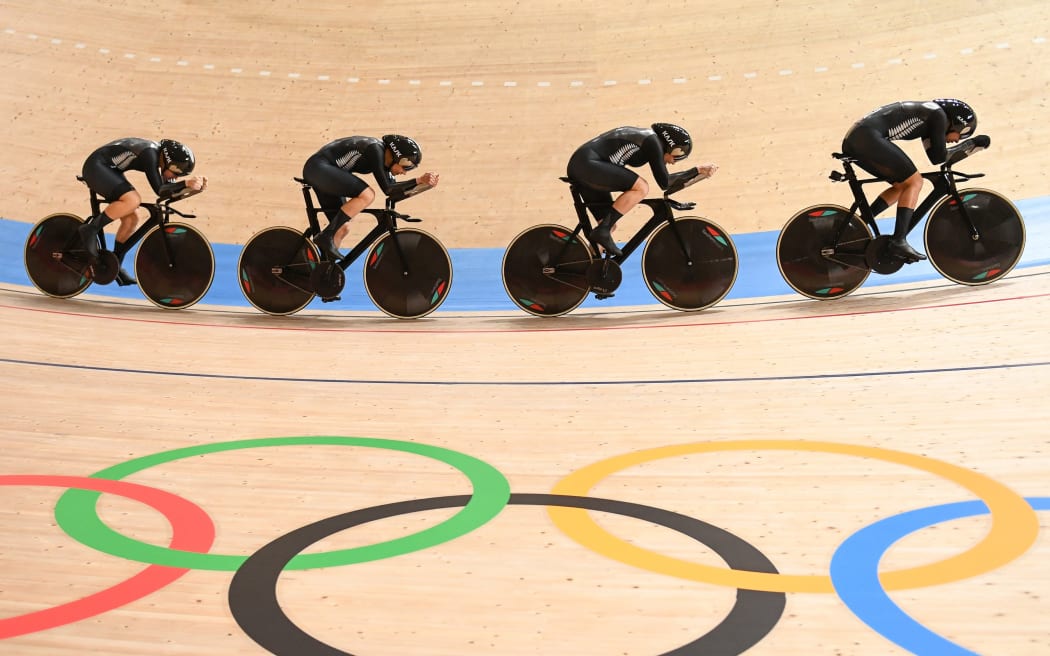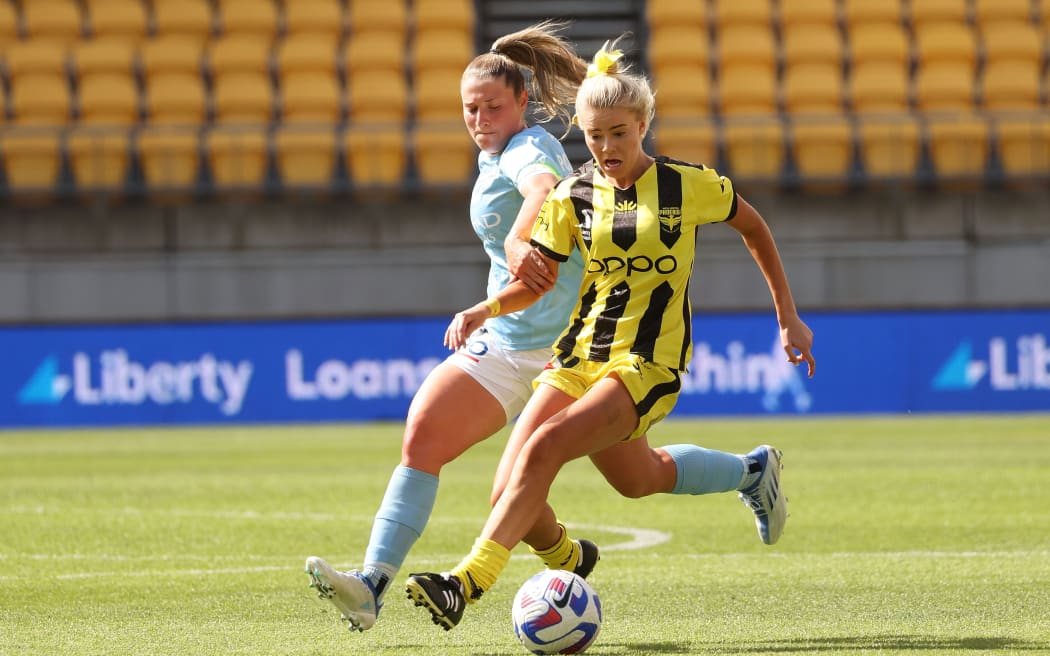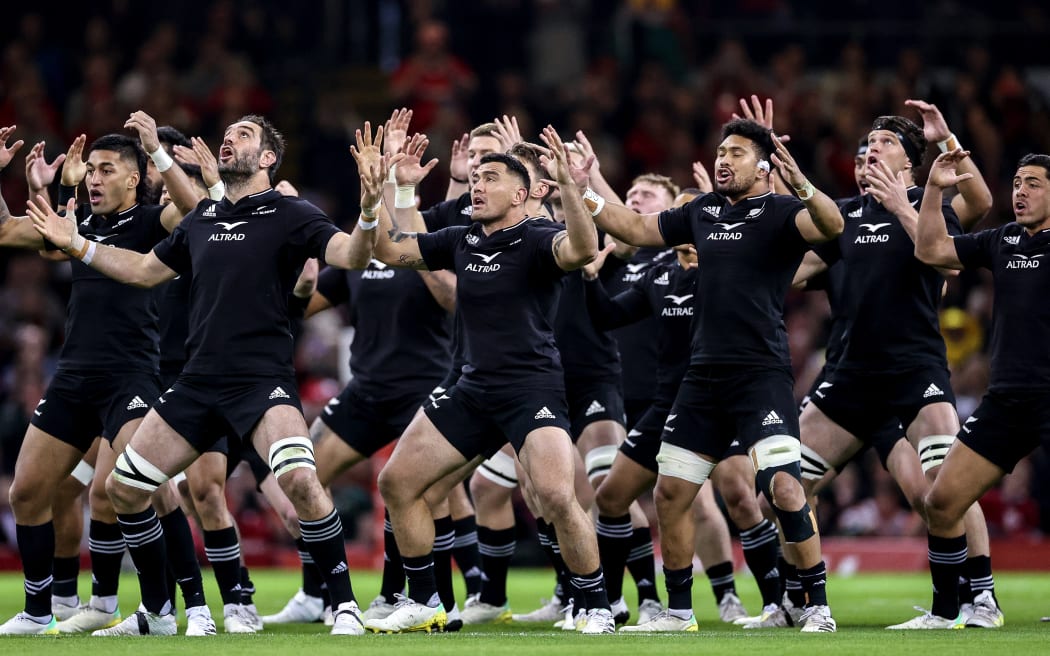Corporate dollars needed to help prop up Olympic sports

The New Zealand women’s team pursuit competing in Tokyo.
Photo: Photosport
Corporate dollars will be needed to top up High Performance Sport New Zealand’s government funding if Olympic sports are to maintain their current level of competition.
Last year HPSNZ made a $131 million three-year investment in 46 sports in the funding cycle which aligns with next year’s Paris Olympic Games.
It was the first time HPSNZ money had been guaranteed to a sport for a period longer than a year.
How much money each sport will get beyond 2024 is still to be decided.
Rather than relying purely on the public purse, HPSNZ chief executive Raelene Castle is encouraging some of the country’s top sports to “maximise the revenue” by seeking sponsorship from the business world.
For some sports this will be easier said than done.
“There’s no doubt that costs are increasing and sports are making much tougher decisions about who travels, how often they travel, when’s the most important time in preparation for the Olympics to travel,” Castle says.
“So those decisions are being taken by sports and we work really closely to make sure that they can balance those types of tough decisions and not impact performance.”
Olympians, and top level sportspeople across the codes, can – and should – cash in on their credibility to boost the coffers as AUT senior lecturer in sport leadership and management Dr Michael Naylor points out.
“One of the reasons that athletes make for great endorsers is that they are well regarded and respected and loved and even adored at times.
“There is money to be made and it is quite right for High Performance Sport New Zealand, other national sport organisations, agents and others to encourage athletes to take advantage of that opportunity.”
As businesses and sports fight to stay afloat in tough economic times Naylor can see how sport sponsorship can be mutually beneficial.
“There’s a multi dimensional nature to sponsorship such that it’s unlike advertising and other promotional techniques and that you can layer in activation and leveraging various types and that creates greater impact ultimately.”
Chasing corporate dollars in a small market
Not all sports have equal opportunities to get corporate sponsors and it can be a challenge for newcomers to show their worth.
New Zealand is a “cluttered” sponsorship market that favours the larger sports of rugby, cricket and netball according to Wellington Phoenix general manager David Dome.
Trying to get a foothold for football was hard work and Dome says they have to “be very clever in how we carve out our niche in that space”.
In 2021 Dome issued a public plea for commercial assistance as the club struggled to find a shirt sponsor for their new women’s team – a situation other sports could end up in.
“There’s not a lot of businesses making extraordinary profits these days.
“And you look at the financial services category, which is one of the ones who do tend to make good profit even in tough economic times, but we find it hard to bring on financial services partners. Across the board, we’ve been lucky in that we’ve had over our history a lot of blue chip partners especially in that front of shirt position.
“But then when we started the women’s team, while a lot of people make a lot of positive noises about women’s sport, we found that very difficult to sell those properties and but eventually we got there and while we’re not 100 percent we’re pretty close.”

Wellington Phoenix playmaker Alyssa Whinham.
Photo: Photosport/Marty Melville
Naylor says recent research shows female athletes “make outstanding endorsers, there’s a good degree of credibility and expertise” but as Dome highlights it is not an easy sell.
Football has an advantage over some Olympic sports in what they can offer in value for sponsors.
The Phoenix play regular home games in front of crowds that can participate in activations – a chance for the club to blast a sponsor name and message to a stadium of supporters. Whereas some Olympic sports primarily compete offshore in the lead up to the showpiece event.
Once a sponsor is on board, Dome aims to lock them in for the long-term.
“It’s a cycle and certain partners will want one year and other partners want three years, the longer the better for us because it you can plan with a bit more certainty around what your budget is going to be like but also means you can come up with plans in the long term, so you’re not trying to recreate the wheel every time.”
Finding the right fit
Selecting which sponsor is the right fit can be a minefield as New Zealand Rugby found out when one year into a six-year deal the owner of jersey sponsor Altrad – Frenchman Mohed Altrad – was sentenced on bribery and corruption charges.
NZR’s link with global chemical giant INEOS has also been controversial.
However, NZR are not swayed by public opinion or court rulings and both sponsors continue to appear on the teams’ kit.
The FIFA Women’s World Cup to be co-hosted by New Zealand and Australia this year dropped plans to take sponsorship from Visit Saudi, the gulf country’s tourism arm, after backlash from Australia and New Zealand, players and other sponsors.

The All Blacks perform the haka before kick-off in the match against Wales in Cardiff.
Photo: Photosport
Castle believes seeking local sponsorship is a better bet.
“I’m not sure that there’s ever been a history of Olympic sports having international sponsorship.
“I think it has been more our domestic base sponsorship, because that’s where the pride fits for New Zealand companies looking for upside and New Zealand success wearing black singlets or black dresses on the world stage. I think that it tends to be more that relationship that works in an Olympic space and that would certainly make sense for a New Zealand Company.”
While international companies have more financial resources to be able to support sports teams, the Phoenix always worked the local representatives of those companies and with those local budgets, Dome says.
As New Zealand looks to move away from junk food sponsorship the pool of potential sponsors that are willing and able to make a significant contribution becomes smaller.
“I think that’s where we all need to be creative,” Castle says.
“There are a number of different sports that have looked at it different ways, and either individual athletes sponsorships or a boat or it might be bringing a group of companies together or bringing a smaller number of sponsors together. So I think there’s lots of different ways to carve the pie and those are the conversations that our commercial team will have with those Olympic sponsors.”
As athletes start to take more of a stance against sponsors that don’t align with their own values some potential benefactors could be ruled out, further diluting the pool of backers.
Former All Black and Blues player Sonny Bill Williams played Super Rugby in 2017 in a jersey that had the logos of banks BNZ and Investec removed as a “matter of conscience”.
Last year Australian netball player Donnell Wallam’s concerns about Hancock Prospecting’s record on Indigenous issues saw Netball Australia forced to find a new sponsor when the mining company backed off taking away a $15 million sponsorship.
Australian cricket captain Pat Cummins, who has regularly spoken out about climate change and environmental causes, reportedly voiced his concerns to Cricket Australia last year about a sponsorship deal with a power company.
That company no longer sponsors the cricket side.
Castle thinks a standoff between athletes, sports’ governing bodies and sponsors can be avoided with communication.
“That’s where an athlete voice group that’s working really effectively with the sport adds real value because if you were in initial discussions or early discussions with any sponsor, that look like they were gearing to become a naming rights or a significant contributor or you were going to have to wear them on your dress or your singlet or shirt or whatever it was, those are the types of conversations that you would have to make sure that athletes were comfortable with before you got too too far down the track with their sponsor and the negotiations that you were having with them.”
Naylor also sounds a warning about sports or athletes turning their back on certain supporters.
“It’s a tricky tightrope to walk because we do want funding coming into sport, but sport with its platform is also an opportunity to convey values and meaning and advance various forms of social justice.
“So it’s a balancing act for sure. There is opportunity to look beyond just the bottom line in terms of the money that’s paid for a sponsorship.
“There are examples around sailing, Peter Burling and Blair Tuke have been involved in various environmental initiatives. Again, fine line to walk there, because you may leave money on the table from other prospective sponsors. if you are wishing to send a message with those who you choose to create business arrangements with.”
For all the latest Sports News Click Here
For the latest news and updates, follow us on Google News.
